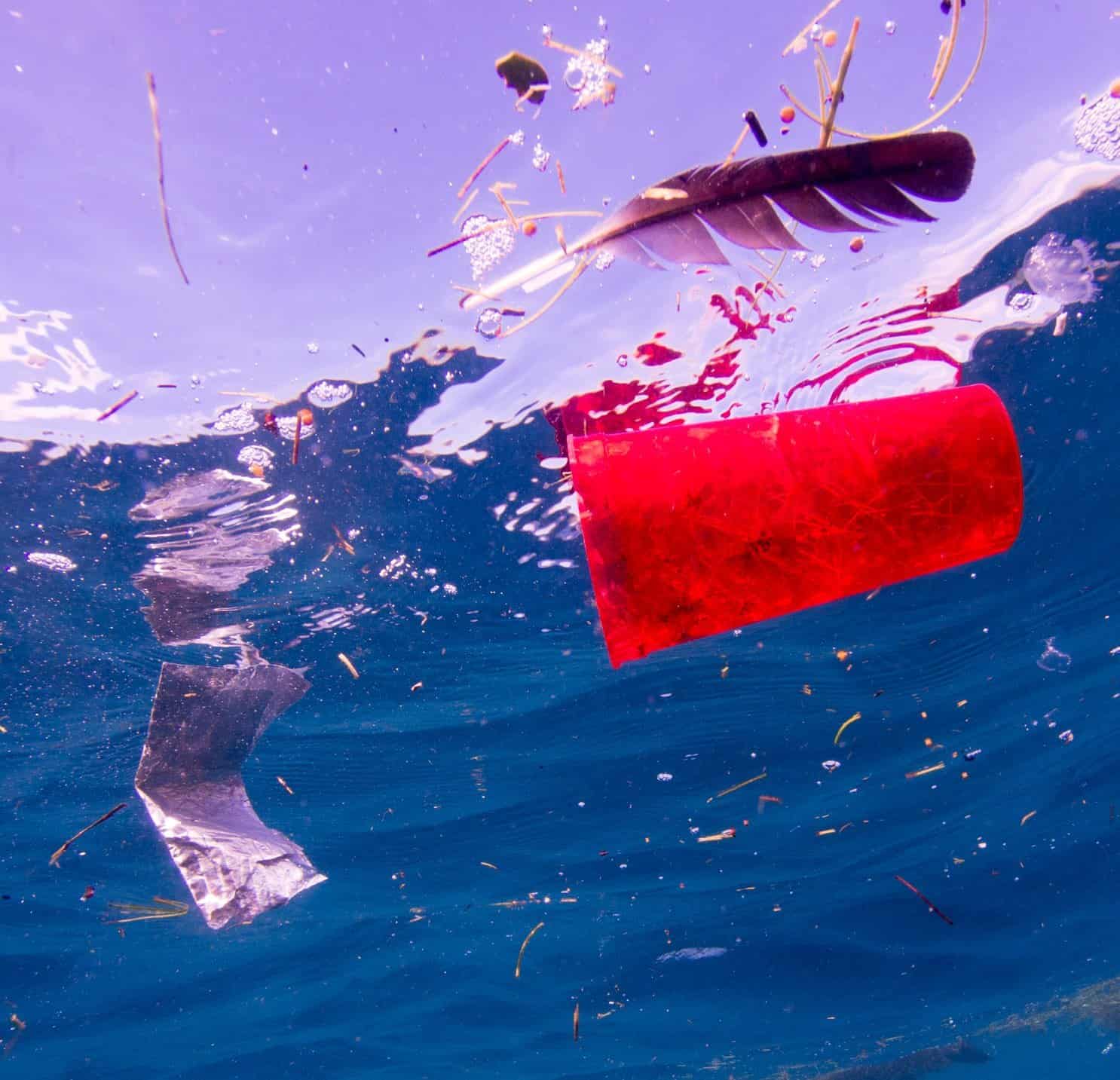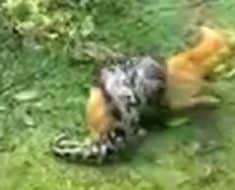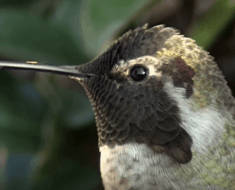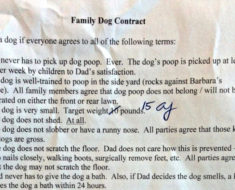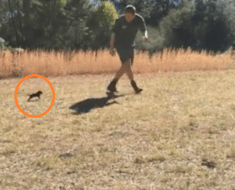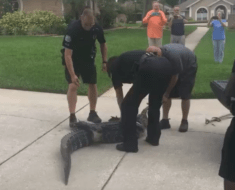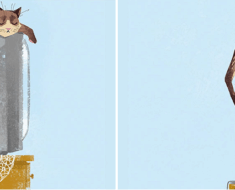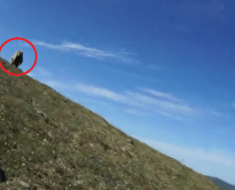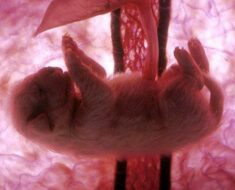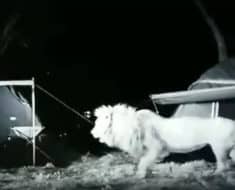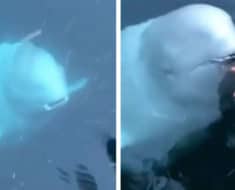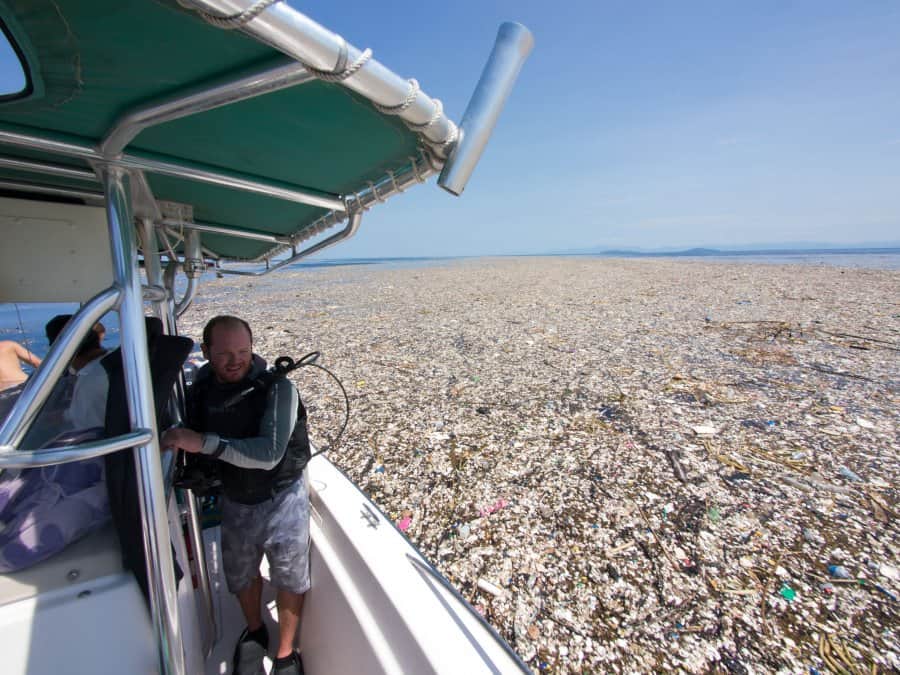
A shocking and disgusting 5-mile long “blanket of plastic” discovered off the coast of an idyllic Caribbean island is literally choking wildlife.
Plastic products are used all over the world and sadly, we as humans have a hard time disposing of these plastic products in a mature and responsible manner. Many of the plastic end up in our oceans. As images captured by Caroline Power off the Honduran island reveals just how these plastics are wreaking havoc in our environment.
The underwater photographer recently came across a scene that shocked and devastated her, a “blanket of plastic waste” material miles wide floating off her previously pristine island home.
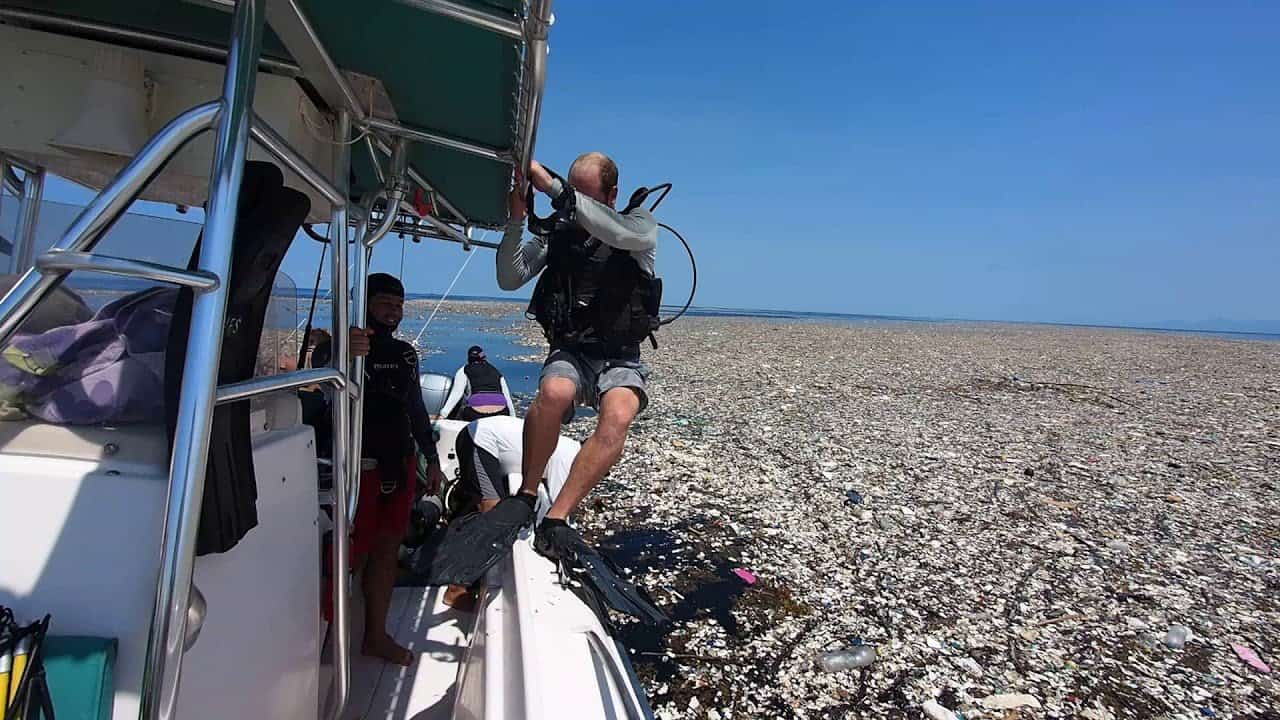
Power discovered this “Great Caribbean Garbage Patch” about 15-miles from the tiny 12-mile-long island of Roatan, a place which has often been described as resembling “paradise.”
In an interview with The Telegram, she said:
“We were on a dive trip to a set of islands that don’t quite break the ocean surface. They are one of the most pristine dive sites in this part of the Caribbean.”
Power, who has dedicated her career to increasing awareness about the “plastic problem,” said that her dive team passed through floating garbage for “nearly five miles.”
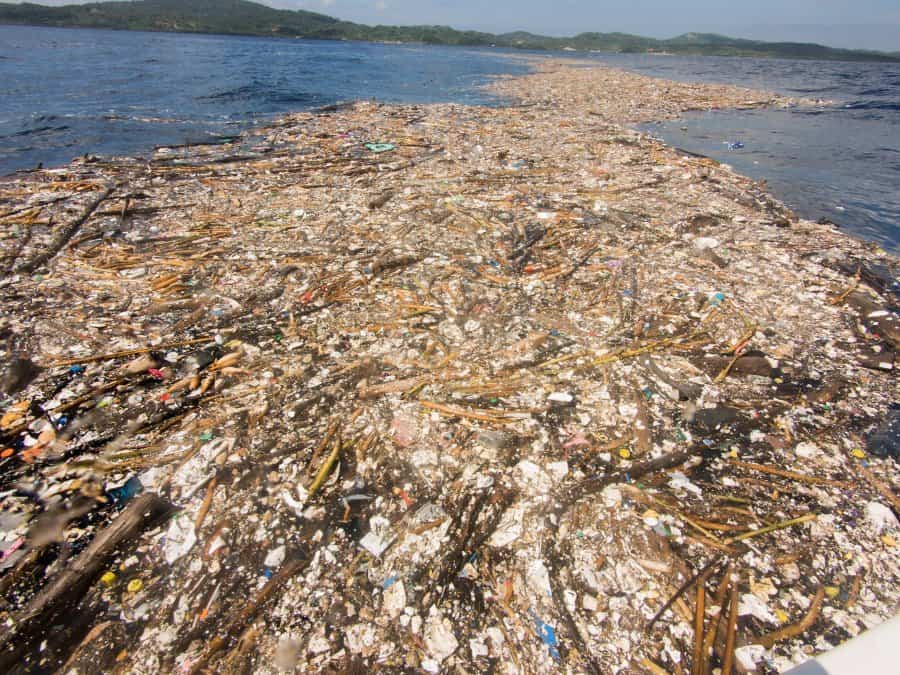
She continued:
“Everywhere we looked, plastic bags of all shapes and sizes: chip bags, ziplocks, grocery, trash, snack bags, other packaging. Some were whole, and the rest were just pieces.”
At one point, the team reached even denser area “about two miles wide that had multiple trash lines that stretched from horizon to horizon.”
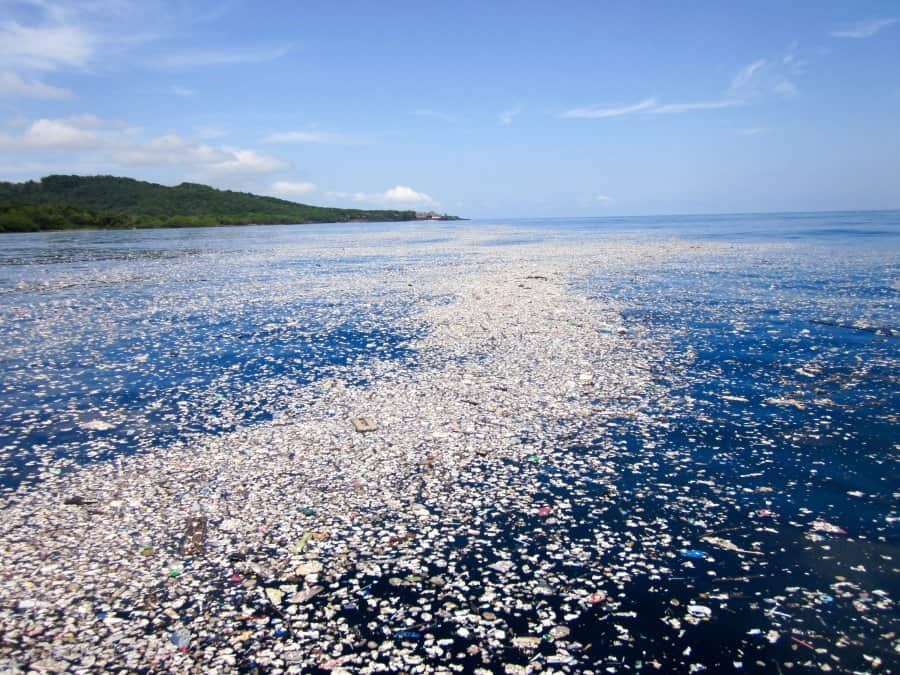
Power reported seeing an infinite number of plastic forks, spoons, and plates. There were also “broken soccer balls, toothbrushes, a television, and so many shoes and flip flops.”
According to the Blue Planet Society, a non-profit organization working to end the exploitation of the ocean, the images as “unbelievable.” They said the garbage probably came from Motagua Riverin Guatemala, washing into the sea during heavy rains.
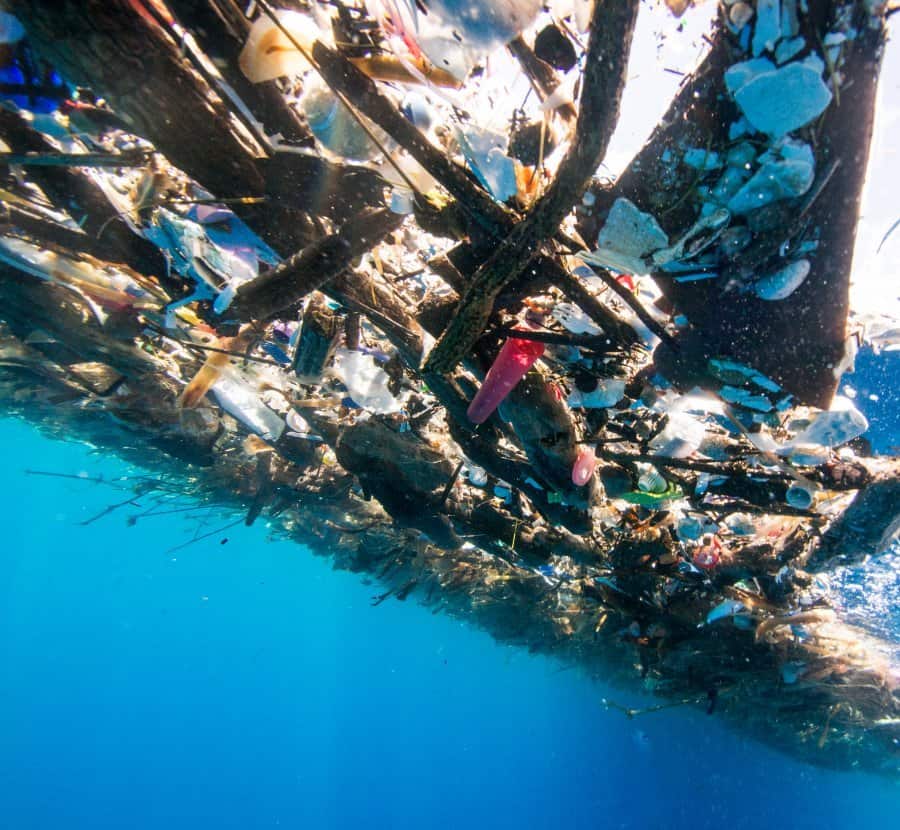
When plastics end up in our oceans, it is costly to remove and clean up, but money isn’t the real issue. The real issue the effect that this trash has on marine life. The plastic is often ingested by wildlife, causing illness and death in many cases.
